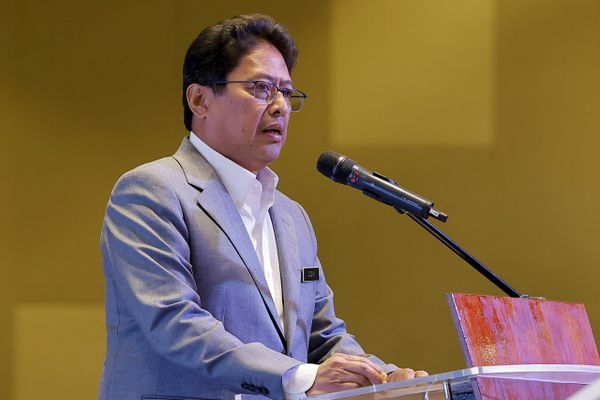PUTRAJAYA, April 17 — Malaysian Anti-Corruption Commission (MACC) chief Tan Sri Azam Baki has urged all government departments to review outdated or obsolete laws and propose suitable amendments that reflect current needs.
He said law reform is a key agenda that must be taken seriously to prevent negative public perceptions towards government agencies.
“Any outdated or unclear standard operating procedures (SOPs) must be improved or amended to align with current societal demands and stakeholders’ expectations,” he said in a speech at the Federal Territories Department’s Seminar on Governance, Integrity and Anti-Corruption Strengthening today
Azam’s speech was delivered by MACC deputy chief (prevention) Datuk Azmi Kamaruzaman.
Officiated by Minister in the Prime Minister’s Department (Federal Territories) Datuk Seri Dr Zaliha Mustafa, the seminar was attended by about 200 staff from the Federal Territories Department.
Azam Baki said every government department, including the MACC, must have clear systems in place, particularly in matters involving the public.
He emphasised that all aspects of office management, front-line services and procurement processes must be governed by clear, transparent and integrity-driven systems.
“For example, in enforcement matters, continuous monitoring of personnel, such as tracking signs of excessive or lavish lifestyles, should be carried out by department heads.
“When incidents occur, the government is often blamed. However, it is important to recognise that such perceptions can arise when certain agencies lack effective oversight and proper management systems, ultimately affecting the government’s public image.
“At the MACC, we have clear SOPs for matters such as arrests, detention and lock-up processes. There are specific guidelines that clearly outline who should be detained, the procedures for doing so and even the protocol for when detainees are required to wear the orange uniform,” he said.
He advised that responses to the media must be prompt and accurate to ensure the public receives reliable information.
He cited the case of witness Teoh Beng Hock’s death, noting that at the time, the MACC’s media management lacked experience and efficiency, which led to the failure of accurate information reaching both public and internal stakeholders.
“We learned from that mistake how to respond more effectively to the media and to discern which ones are not worth engaging. Attention should be given only to media outlets that uphold a high standard of integrity.
“What matters most is that the public receives clear information and a proper understanding of the issues at hand,” he said.
Meanwhile, in her speech, Zaliha called on the Federal Territories Department to consider establishing a dedicated governance and integrity task force for all three Federal Territories.
She also emphasised the importance for each division and agency to conduct self-audits of their SOPs to identify areas for continuous improvement.
— Bernama




